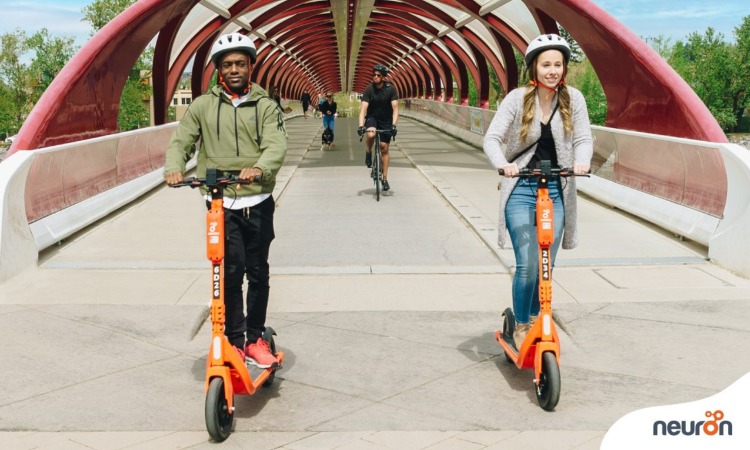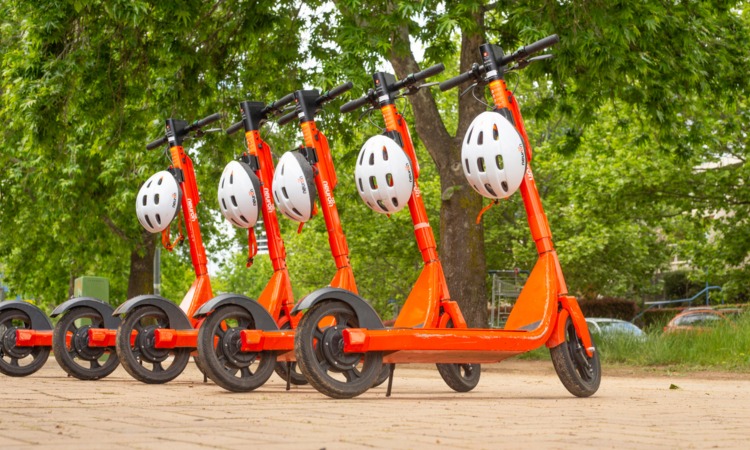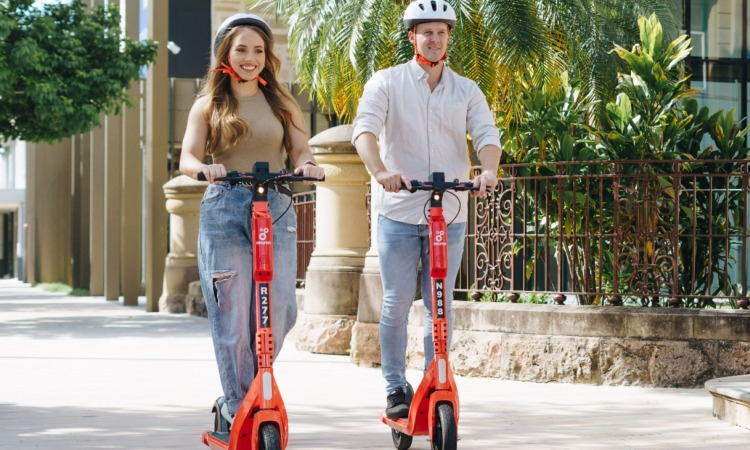E-scooter safety begins by picking up a helmet
- Like
- Digg
- Del
- Tumblr
- VKontakte
- Buffer
- Love This
- Odnoklassniki
- Meneame
- Blogger
- Amazon
- Yahoo Mail
- Gmail
- AOL
- Newsvine
- HackerNews
- Evernote
- MySpace
- Mail.ru
- Viadeo
- Line
- Comments
- Yummly
- SMS
- Viber
- Telegram
- Subscribe
- Skype
- Facebook Messenger
- Kakao
- LiveJournal
- Yammer
- Edgar
- Fintel
- Mix
- Instapaper
- Copy Link
Posted: 12 October 2022 | Nathan Davies - Royal Society for the Prevention of Accidents (RoSPA) | No comments yet
Nathan Davies, Executive Head of Policy and Portfolio at the Royal Society for the Prevention of Accidents, highlights the importance of helmet safety for riders choosing to travel via micro-mobility, and shares his insight into work that RoSPA is undertaking in partnership with Neuron Mobility in order to spread the word and emphasise the importance of a rider prioritising their safety.


Credit: Neuron Mobility
Two years on from the introduction of e-scooters onto England’s streets, we have seen them continue to grow in popularity. As the country faces increasing fuel prices and costs of living, as well as the worsening impacts of the climate crisis, the benefits of e-scooters as a more affordable and sustainable mode of transport are clear to many.
Our research at the Royal Society for the Prevention of Accidents (RoSPA) found that e-scooters are safer than many other modes of transport, but injury figures have nonetheless risen quickly. The latest road traffic statistics show that 10 e-scooter riders were killed in the 2021 reporting year, and 331 people suffered serious injuries.
With an increasing number of riders, trips and miles travelled, safety must remain top of mind for riders, operators and city authorities. We want people to ride safely within the law and to protect themselves from injury.
A simple and effective way to reduce risk
As a rider, wearing a helmet is one of the simplest and most effective ways to reduce the risk of serious injury due to an accident. Numerous studies conducted both in the UK and abroad have shown, time and time again, that e-scooter riders who do not wear a helmet are much more likely to suffer serious injuries like skull fractures.
One recent example is a study by researchers in Finland, which found that a majority of e-scooter riders treated for head injuries at Turku University Hospital were not wearing a helmet at the time of the accident. The researchers noted that wearing a helmet is a significant factor, offering protection from traumatic brain injuries.


Spreading the word
This is why RoSPA has been working closely with e-scooter operator Neuron Mobility over the past two years to promote the wearing of helmets through rider education campaigns like Helmet Safety Awareness Week, which ran from 3 October to 9 October in 2022.
We partnered with Neuron to launch the first Helmet Safety Awareness Week in 2021, when we jointly ran events targeting both new and existing riders, and offered incentives for riders who submitted photos of themselves wearing a helmet.
Neuron pioneered the world’s first app-controlled helmet lock – it integrates a helmet to every e-scooter – to ensure that their riders always have a helmet on-hand. The company has consistently emphasised the importance of wearing one through initiatives like its in-person #ScootSafe events and its online ScootSafe Academy.


Credit: Neuron Mobility
The results are clear
Such efforts have no doubt helped to increase helmet use. A poll conducted by Neuron in 2021 found that 94 per cent of its riders in the UK believe that wearing a helmet is important, and 84 per cent would wear one if it is provided by the e-scooter operator, even though it is not mandatory here. Yet, only 54 per cent said that they would still wear a helmet even if one was not provided, showing that convenience is a key contributor in their decision.
We believe that more e-scooter operators should provide helmets to encourage their use. Riders should be less blasé about the risks; accidents don’t have to happen, but if they do, the humble helmet can protect them exponentially better.


Nathan combines responsibility for RoSPA’s portfolio of training and consultancy services with managing RoSPA’s policy activities across home, road, leisure and occupational safety and health. This dual remit allows Nathan to ensure that RoSPA’s unique thought-leadership continues to drive the creation of innovative safety solutions.
His aim is to ensure that clients receive practical and pragmatic advice at all times, and that the exchange of information and expertise produces beneficial outcomes.
Related topics
Micro-mobility, Passenger Experience, Vehicle & Passenger Safety
Related modes
Bikes & Scooters
Related countries
United Kingdom
Related organisations
Neuron Mobility, Royal Society for the Prevention of Accidents
Related people
Nathan Davies








